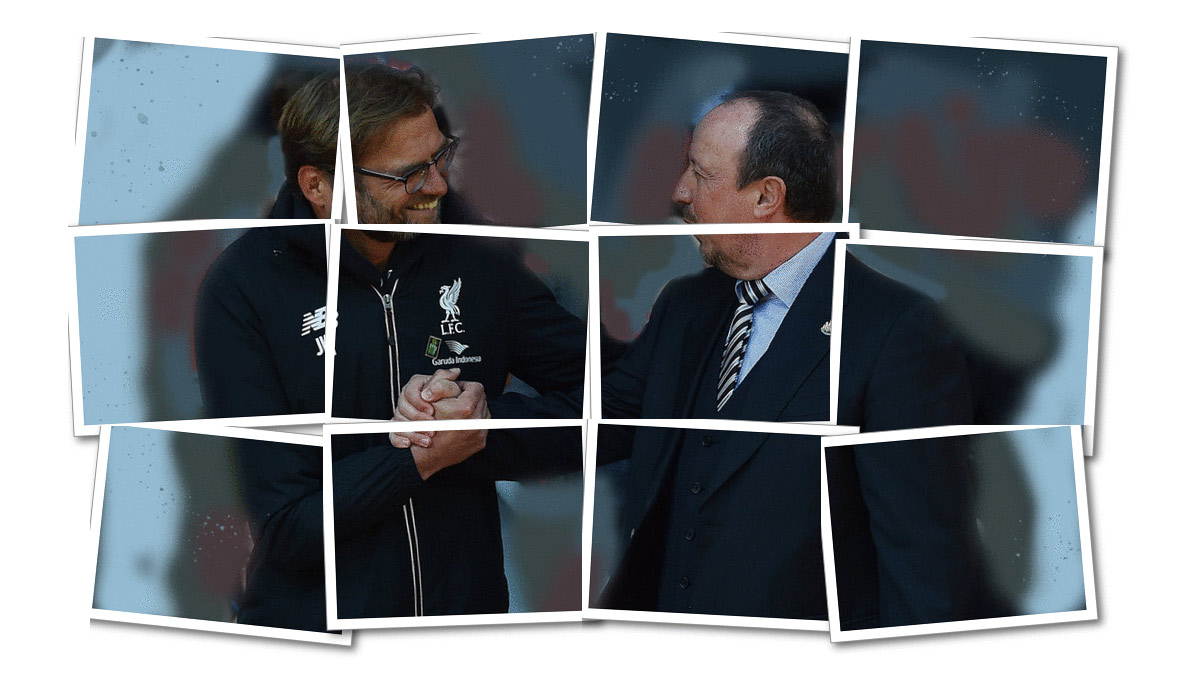
Since the moment the club was formed in 1892, the position of Liverpool manager has been an important one. The way in which managers worked during the early days was very different to how they work today, of course, not least thanks to the manager in which Bill Shankly changed things for the better. Thanks to him, the role of manager in the present day has been seen as of vital importance, with some taken to heart readily and others rejected by the Anfield faithful for not understanding what it is that Liverpool as a football club is all about (hello Roy Hodgson).
The details of some managers will be seared into the brains of most Liverpool supporters, such is the extent to which they’ve been influential to the way in which we’ve viewed success. Some, especially the older ones, won’t be known all that well and you might not even know the name of. Since Shankly, however, it would be surprising if even the youngest fan couldn’t list every manager in order, with the role being one that has been put on a pedestal. That is especially the case when the manager in question has got things right, adding silverware to the ever-growing cabinet.
Looking At The Managers & Their Records
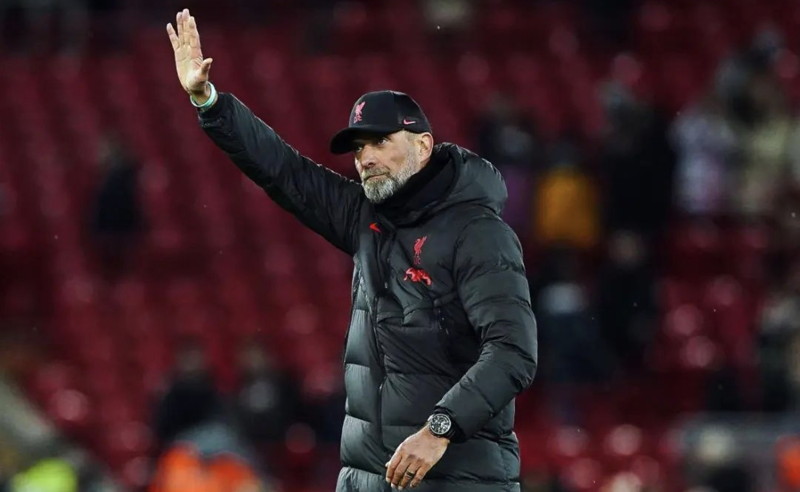
Between the start of Liverpool’s existence and the beginning of the 2023-2024 season, the Reds had 23 manager. To give that some context, Watford had that many between June 2009 and October 2023. Our friends across the park had that number of people in charge between April 1973 and October 2023, not including those that took on the role more than once.
In other words, having so few managers over such an extended period of time isn’t the norm in the world of football, with Liverpool’s loyalty to the man in the hotseat often being what set the club apart.
| Manager | Date Appointed | Date Left | Nationality | Games Won | Games Lost | Games Drawn | Win % |
|---|---|---|---|---|---|---|---|
| William Edward Barclay / John McKenna* | 15/02/1892 | 16/08/1896 | Irish / Irish | 77 | 30 | 20 | 60.63 |
| Tom Watson | 07/08/1896 | 06/05/1915 | English | 329 | 272 | 141 | 44.34 |
| David Ashworth | 18/12/1919 | 12/02/1923 | English | 70 | 29 | 40 | 50.36 |
| Matt McQueen | 13/02/1923 | 15/02/1928 | Scottish | 93 | 76 | 60 | 40.61 |
| George Patterson | 7/03/1928 | 06/08/1936 | English | 137 | 144 | 85 | 37.43 |
| George Kay | 06/08/1936 | –/01/1951 | English | 142 | 122 | 93 | 39.78 |
| Don Welsh | 23/03/1951 | 04/05/1956 | English | 81 | 93 | 58 | 34.91 |
| Phil Taylor | –/05/1956 | 17/11/1959 | English | 76 | 42 | 32 | 50.67 |
| Bill Shankly | 01/12/1959 | 12/07/1974 | Scottish | 407 | 178 | 198 | 51.98 |
| Bob Paisley | 26/08/1974 | 01/07/1983 | English | 308 | 96 | 131 | 57.57 |
| Joe Fagan | 02/07/1983 | 29/05/1985 | English | 71 | 24 | 36 | 54.20 |
| Kenny Dalglish | 30/05/1985 | 21/02/1991 | Scottish | 187 | 42 | 78 | 60.91 |
| Ronnie Moran** | 22/02/1991 | 15/04/1991 | English | 4 | 5 | 1 | 40.00 |
| Graeme Souness | 16/04/1991 | 28/01/1994 | Scottish | 66 | 46 | 45 | 42.04 |
| Roy Evans | 31/01/1994 | 12/11/1998 | English | 117 | 53 | 56 | 51.77 |
| Roy Evans / Gérard Houllier | 16/07/1998 | 12/11/1998 | English / French | 7 | 5 | 6 | 38.89 |
| Gérard Houllier*** | 12/11/1998 | 24/05/2004 | French | 160 | 74 | 73 | 52.12 |
| Rafael Benítez | 16/06/2004 | 03/06/2010 | Spanish | 194 | 79 | 77 | 55.43 |
| Roy Hodgson | 01/07/2010 | 08/01/2011 | English | 13 | 9 | 9 | 41.94 |
| Kenny Dalglish**** | 08/01/2011 | 16/05/2012 | Scottish | 35 | 22 | 17 | 47.30 |
| Brendan Rodgers | 01/06/2012 | 04/10/2015 | Northern Irish | 83 | 42 | 41 | 50.00 |
| Jürgen Klopp***** | 08/10/2015 | Present | German | 271 | 76 | 100 | 60.63 |
*Although William Edward Barclay & John McKenna were considered joint managers, they had different titles. Barclay was the ‘secretary-manager’ and McKenna the ‘coach-manager’
**Ronnie Moran was also the caretaker manager during the period of time that Graeme Souness was absent as a result of having heart surgery, but this period is not included here
***Gérard Houllier was also absent due to illness, with Phil Thompson replacing him. The records of Thompson during this period are included in Houllier’s statistics
****Kenny Dalglish was the manager of Liverpool twice. His cumulative stats are that he won 222 games, lost 64 and drew 95, with a win percentage of 58.27
*****Jürgen Klopp is the Liverpool manager at the time of writing. His stats go up to 31/10/2023
Taking A Closer Look
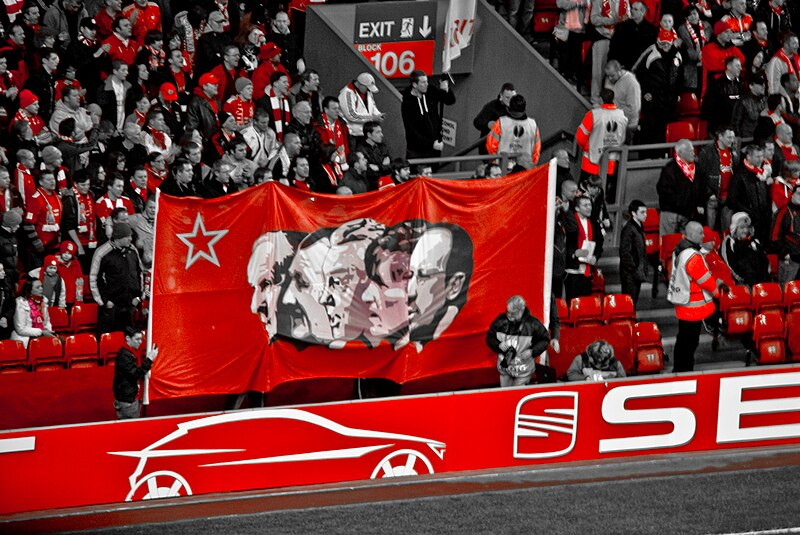
Having taken a look at how the various managers got on during their periods in charge of Liverpool, it is worth taking a close look at them as people. We will break it down into individuals, so each of the joint-managers will get their own section.
It is fair to say that there will probably be more to say about some managers than others, with some of them even having their own section on this site. All of the major managerial honours listed are exclusive of their time as Liverpool manager.
William Edward Barclay
Born on the 14th of June 1857, William Edward Barclay was actually the first manager of Everton Football Club. That period of time was short, with Barclay taking charge for just 22 games. When Everton departed Anfield in order to play their games in the purpose-built Goodison Park, Barclay chose to remain at Anfield in order to help set up the new team that the owner of the ground, John Houlding, was planning to launch.
He took on the role of ‘secretary-manager’, working alongside John McKenna in order to lead Liverpool to the Second Division title in 1893-1894 and then the same honour two years later.
Major Managerial Silverware:
- Second Division (1893-1894, 1895-1896)
John McKenna
John McKenna was older than William Edward Barclay, having been born on the third of January 1855.
Like Barclay, he was Irish, joining Liverpool after the club’s creation in the wake of Everton’s departure. He used his connections in Scotland to bring in a wealth of Scottish players, to such an extent that Liverpool became known as ‘the Team of Macs’.
Despite asking the Football League to allow Liverpool to be admitted, McKenna had to guide the team through the Lancashire League when the application was turned down. He was the ‘coach-manager’ during those two Second Division titles.
Major Managerial Silverware:
- Second Division (1893-1894, 1895-1896)
Tom Watson
Tom Watson, not to be confused with the Labour politician of the same name, helped to form Rosehill in Newcastle-Upon-Tyne in 1881. He went on to join Sunderland, being the manager for six seasons between 1889 and 1896. Sunderland won three league championships under his charge, meaning he is the most successful manager in the history of the Black Cats.
His success caught the attention of Liverpool, with Watson taking over in 1896. He remained in charge of the club until he died in 1915, making him Liverpool’s longest-serving manager.
Major Managerial Silverware:
- First Division (1900-1901, 1905-1906)
- Second Division (1904-1905)
David Ashworth
In what is virtually unthinkable in the modern game, David Ashworth was a referee as well as a manager. He was the first manager of Oldham Athletic after the football club’s foundation in 1906, spending eight years there before moving to Stockport County. He was appointed Liverpool manager in 1920, taking the club to its second-successive fourth place finish.
A year later, he made up the eight point gap of the previous season to lead Liverpool to the club’s third League Championship. He left the club in the February of 1923 in order to go back to Oldham, failing to save them from relegation.
Major Managerial Silverware:
- First Division (1921-1922)
Matt McQueen
Nowadays, Liverpool is a club with a rich history of Scottish players and managers. When Matt McQueen took over as director and manager, however, he became the first Scot to take the role, having previously played for the club. When David Ashworth stepped down to head to Oldham, McQueen was appointed manager.
Despite winning just one of the final seven games, the club still won the Championship quite comfortably. McQueen remained as manager for five years in spite of the fact that he was 60 when he took the job, with his most significant impact being signing prolific striker Gordon Hodgson.
Major Managerial Silverware:
- First Division (1922-1923)
George Patterson
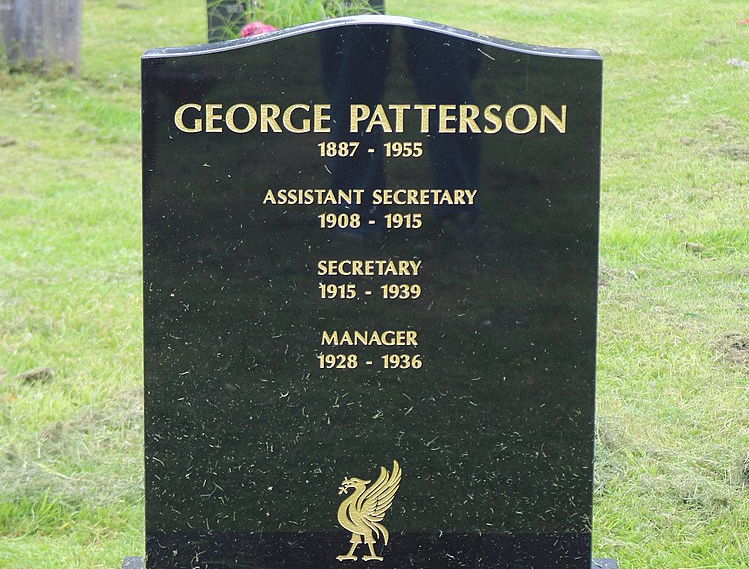
Having spent most of his playing career at Marine, the Merseyside club, George Patterson became assistant to Tom Watson in 1908. He was briefly the club secretary before taking over form Matt McQueen as manager in 1928. He was not particularly successful, resigning in 1936 due to ‘ill health’, although he continued in his role as the club secretary.
Having been born in Liverpool in 1887, Patterson also died in the city on the eight of May 1955. He was one of just five Liverpool managers to date who failed to win any silverware during his time in charge.
Major Managerial Silverware:
- None
George Kay
Born in Manchester, George Kay played for Bolton Wanderers, Distillery, West Ham United and Stockport County during a playing career that spanned 16 years. In 1929 he turned to management, taking over at Luton Town before moving on to Southampton.
He was appointed as Liverpool manager in 1936, getting just three wins and four draws in his first 12 games. He managed to get the club mid-table the following season, bringing in Bob Paisley and Billy Liddell in the summer before the Second World War broke out and interrupted the season.
George Kay was born 21 Sep 1891. Made #LFC champs 1947. "If any man gave his life for a club; George Kay did so for Liverpool." – B. Liddell pic.twitter.com/uqJfHiS76B
— LFChistory.net (@LFChistory) September 21, 2016
After the war, Kay led the club on a tour of Canada and United States of America, playing ten matches in less than a month and being significantly fitter than other teams. Despite starting the season slowly, the club won seven times in a row on their way to the title. He also led Liverpool to the FA Cup final, the first time they’d played in it for 36 years, but lost to Arsenal 2-0.
Kay’s health had deteriorated and he chose to retire in the January of 1951. He died just thee years later on the 18th of April 1954, having enjoyed his most successful spell as a manager with Liverpool.
Major Managerial Silverware:
- First Division (1946-1947)
Don Welsh
Spending his career playing inside left for Charlton Athletic, Don Welsh became the manager of Brighton & Hove Albion in 1947, remaining there for four years. During his playing days he had made guest appearances for Liverpool during the Second World War, so when the club found itself without a manager following the retirement of George Kay he seemed like a natural fit.
Things didn’t go well for Welsh, nearly guiding Liverpool to relegation one season before managing it the next. It was the first time the club had been relegated in more than 50 years.
On this day in 1951, Don Welsh made his managerial debut for #LFC. The Reds won 1-0 with Charlton Athletic at Anfield, with the winning goal coming from Jack Haigh. Welsh was 40 when he arrived to Liverpool FC from Brighton and he spent 5 years at Anfield.#LFChistory_net pic.twitter.com/3d3g3hzh4X
— LFChistory.net (@LFChistory) March 23, 2022
What made that pill even more bitter to swallow was that Everton were promoted into the First Division on the same day. The Reds remained in the Second Division for another eight seasons, with Welsh coming close to getting them out of it in the 1955-1956 campaign. He failed, however, resulting in him being sacked by the club that summer.
Viewed as someone with something of an eccentric style of management, Welsh would go on to manage Bournemouth & Boscombe Athletic as well as Wycombe Wanderers. He is one of only a few Liverpool managers to win no silverware.
Major Managerial Silverware:
- None
Phil Taylor
Not to be confused with Phil ‘The Power’ Taylor, the darts player, Phil Taylor signed for Liverpool from Bristol Rovers during his playing days. He played 312 times in the league for the Reds, returning in 1954 before becoming manager two years later, having been a part of the backroom staff before that.
He was determined to get Liverpool back into the First Division, signing players such as Alan A’Court and Tommy Younger, as well as a man who would go on to become a Liverpool legend in Ronnie Moran. He also gave Liverpool debuts to some well-known names.
On this day in 1959 Liverpool manager Phil Taylor resigned, saying “The strain of it all has made me very tired at times and I decided, great as is my love for Liverpool, to resign.”
The best thing about football is that you never know what is going to come next pic.twitter.com/jg84uwlR0w
— The Anfield Wrap (@TheAnfieldWrap) November 17, 2020
In 1958, Taylor gave a debut to Roger Hunt, the player who would go on to score 286 goals for the Reds. Of far greater importance, though, was the backroom team that he put together. He asked Reuben Bennett, Joe Fagan and Bob Paisley to work with him, with the next manager in the hotseat keeping them on as advisors.
Sadly, his attempts to get Liverpool back into the First Division failed and in 1959 he resigned as manager, telling the Liverpool Echo that his ‘striving has not been enough’ and confirming that he was going to hand over the reigns to someone else.
Major Managerial Silverware:
- None
Bill Shankly
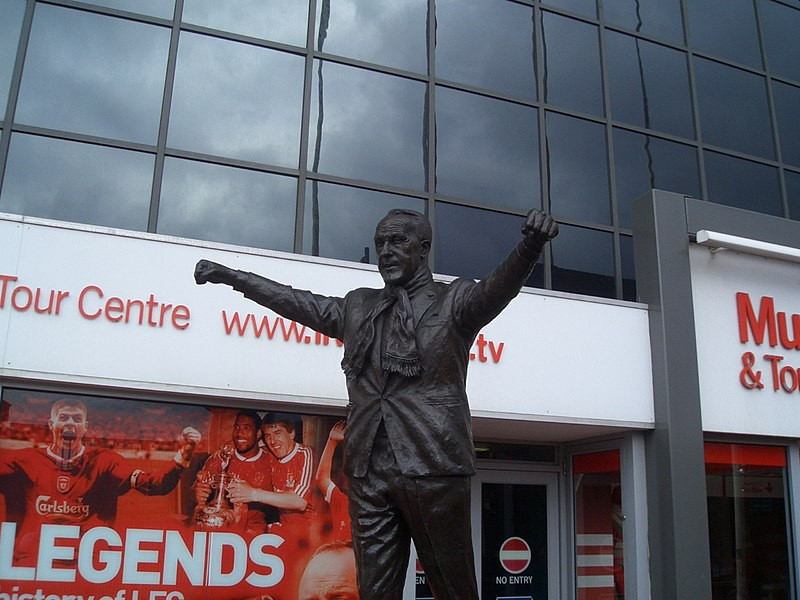
Life is full of sliding doors moments and had Phil Taylor manager to get Liverpool promoted out of the Second Division he would doubtless have been given a chance to prove his worth in the top-flight. Fortunately enough from the point of view of the club, that didn’t happen and Liverpool turned to a man who had done well at the likes of Huddersfield Town, Bill Shankly.
The Scot, who you can read about in more detail elsewhere on this site, came in when Liverpool were in a state both on and off the pith. He changed the fortunes in every way, modernising Anfield and the club’s training ground of Melwood.
Bill Shankly arrives back in Liverpool after the 1971 FA Cup Final #LFC pic.twitter.com/pB1jGDe6gv
— Angies Liverpool (@angiesliverpool) October 26, 2023
What Shankly did in the years that followed helped to make Liverpool into the behemoth that it is today, bringing in some of the best-known names in the club’s history as well as achieving the seemingly impossible by winning the FA Cup, becoming the first Liverpool manager to do so.
He wanted to make the Reds into a ‘bastion of invincibility’, which he all but achieved. He also made changes that remain in place today, such as installing the ‘This is Anfield’ sign above the tunnel and getting the players to play in an all-red kit. Shankly laid the foundations for everything that would follow.
Major Managerial Silverware:
- First Division (1963-1964, 1965-1966, 1972-1973)
- Second Division (1961-1962)
- FA Cup (1964-1965, 1973-1974)
- UEFA Cup (1972-1973)
Bob Paisley
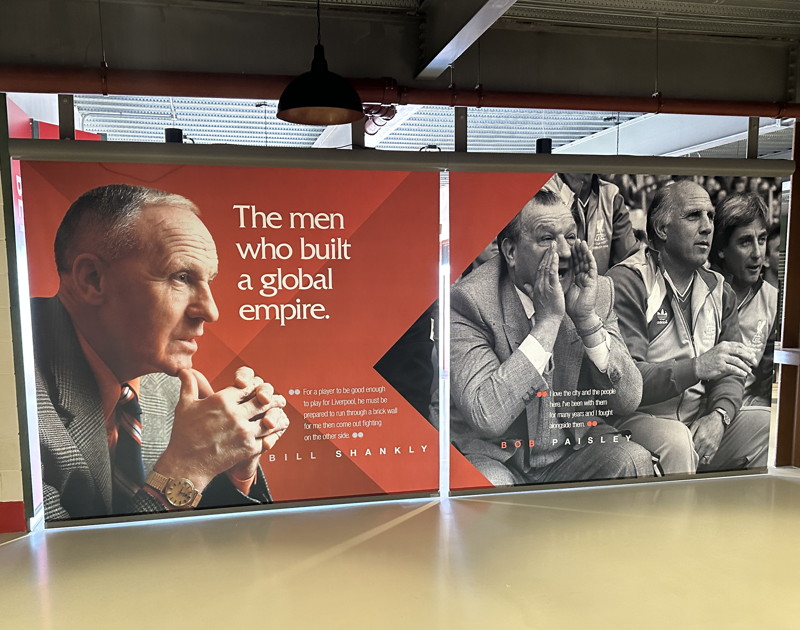
If Shankly laid the foundations for what was to come, Bob Paisley built on them with aplomb. He signed for Liverpool as a wing-half from Bishop Auckland, arriving in 1939 and continuing playing until 1954. At that point he joined the Liverpool backroom staff and was part of Shankly’s infamous ‘Bootroom’ gang.
He appointment as manager came after Shankly’s unexpected resignation, being something of a reluctant Liverpool manager. Whilst Alex Ferguson would go on to win huge amounts of silverware, not even he could manage it at the rate that Paisley did.
You'll Never Walk Alone and what it means to be part of Liverpool FC .The statue outside Anfield is a tribute to the famous picture from 29/4/ 1968 in a 1-1 draw Tottenham showing an injured and bloodied Emlyn Hughes being carried off by Bob Paisley who was at the time a physio. pic.twitter.com/mTEOFdoWhQ
— Selmark (@IyandaSeleem1) October 30, 2023
By the time he retired, Paisley had won the equivalent of 2.2 trophies per season; a rate only surpassed by Pep Guardiola at Manchester City during a period of time when the club faced 115 charges of financial impropriety. He remains Liverpool’s most successful ever manager, winning 20 trophies with the club and taking home six Manager of the Year Awards. In fact, the only trophies that Paisley failed to win were the FA Cup, making the final in 1977, the European Cup Winners’ Cup and the Intercontinental Cup, winning everything else it was possible to win.
Major Managerial Silverware:
- First Division (1975-1976, 1976-1977, 1978-1979, 1979-1980, 1981-1982, 1982-1983)
- League Cup (1980-1981, 1981-1982, 1982-1983)
- European Cup (1976-1977, 1977-1978, 1980-1981)
- UEFA Cup (1975-1976)
- UEFA Super Cup (1977)
Joe Fagan
Having played for Manchester City as a wing-half, Joe Fagan was briefly player-manager of Nelson in Lancashire. He became part of the coaching staff under Phil Taylor and was kept on by Bill Shankly and then Bob Paisley. He was the reserve team coach between 1958 and 1971 and then promoted to the first team.
In 1979 Paisley made him the assistant manager and he was well-known in the world of football as an excellent coach, in spite of his quiet and unassuming manner. When Paisley retired, it seemed natural to give another member of the bootroom team the job.
One hundred years ago today, the legendary Joe Fagan was born.
A true Liverpool great ❤️ pic.twitter.com/P4pJChyhKU
— Liverpool FC (@LFC) March 12, 2021
Despite his initial reluctance, he proved to be every bit as talented as his predecessors, becoming the first manager of an English club to win a treble when the Reds won the European Cup, First Division and League cup during his debut season. Sadly, his managerial career was marred by tragedy, with Fagan being the man in charge when Liverpool played Juventus in the European Cup final at Heysel Stadium in 1985.
Some Liverpool fans charged an area of the ground where some Juventus fans were located, causing a wall to collapse and leading to the deaths of 39 people. He resigned on the 29th of May.
Major Managerial Silverware:
- First Division (1983-1984)
- European Cup (1983-1984)
- League Cup (1983-1984)
Kenny Dalglish
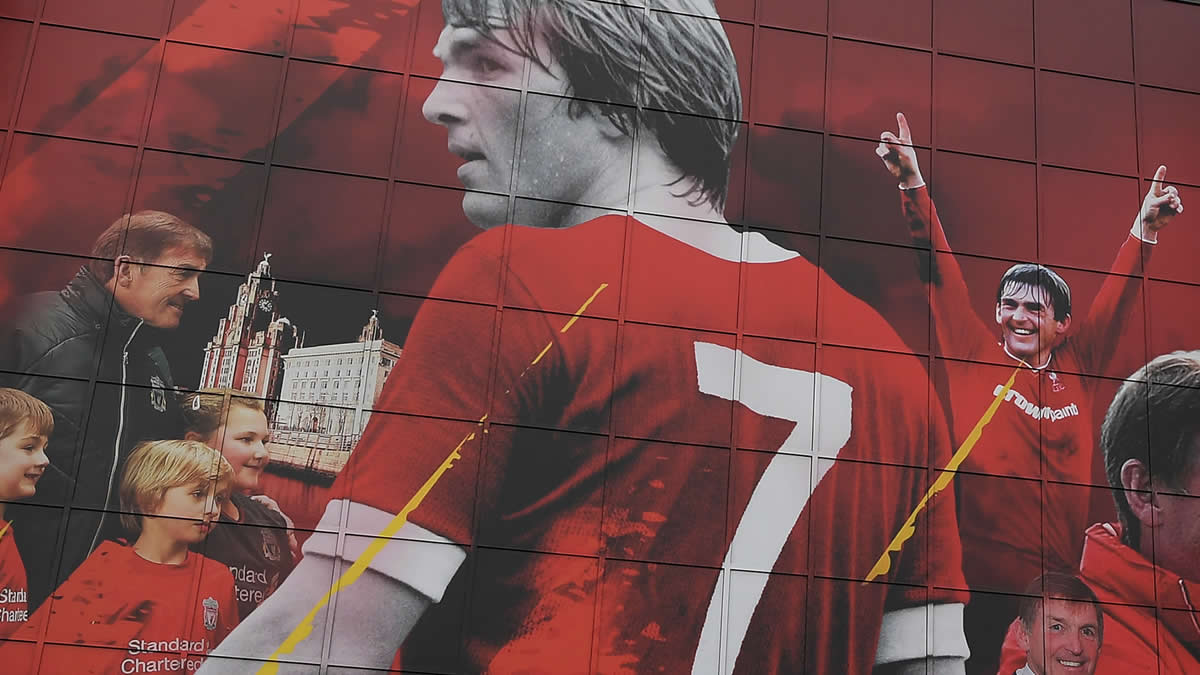
Kenny Dalglish is considered to be one of the best players that Liverpool have ever had, which is part of the reason he has a page dedicated to him elsewhere on this site. When Fagan retired in the aftermath of the Heysel Disaster, Dalglish was appointed as the club’s player-manager.
Mirroring his predecessor, he did the unprecedented in his first season when he led Liverpool to their first foul, winning First Division and the FA Cup. The 1987-1988 team that Dalglish put together is considered to be one of the best that Liverpool have ever had, losing just twice in 40 games.
On this day in 1977, Liverpool signed Kenny Dalglish from Celtic 🔴
Already a force in Europe, the Scot was a sensation for The Reds, scoring 1⃣7⃣2⃣ goals and providing 1⃣6⃣7⃣ assists in 515 #LFC appearances!
🎶 And Could He Play 🎶
— The Redmen TV (@TheRedmenTV) August 10, 2023
As with Fagan, however, Dalglish’s first managerial spell was marred by tragedy. When Liverpool played Nottingham Forest in the FA Cup semi-final of 1989, police negligence led to the deaths of 97 supporters. Dalglish was a rock for the families in the months and years that followed, eventually resigning as the pressure took its toll.
When Liverpool sacked Roy Hodgson in 2011, it was Dalglish who was asked to return to the managerial post, leading the Reds to an FA Cup final and a League Cup win before being sacked on account of the league form not being good enough.
Major Managerial Silverware:
- First Division (1985-1986, 1987-1988, 1989-1990)
- FA Cup (1985-1986, 1988-1989)
- League Cup (2011-2012)
Ronnie Moran
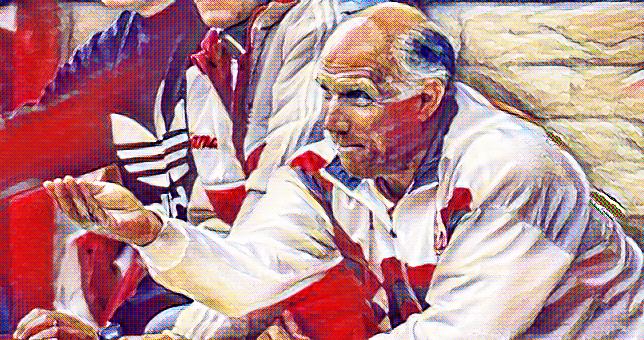
Ronnie Moran was known as ‘Mr Liverpool’, having signed for the club as a player in 1952 and not leaving until his retirement from football. He was a crucial part of the bootroom and was club’s longest-serving employee when he eventually left. Whilst not technically a manager and simply serving the role during the period of time between Kenny Dalglish’s resignation and the appointment of Graeme Souness.
He was also briefly the manager when Souness was recovering from heart surgery, meaning that he has more than earned his place on this list.
Major Managerial Silverware:
- None
Graeme Souness
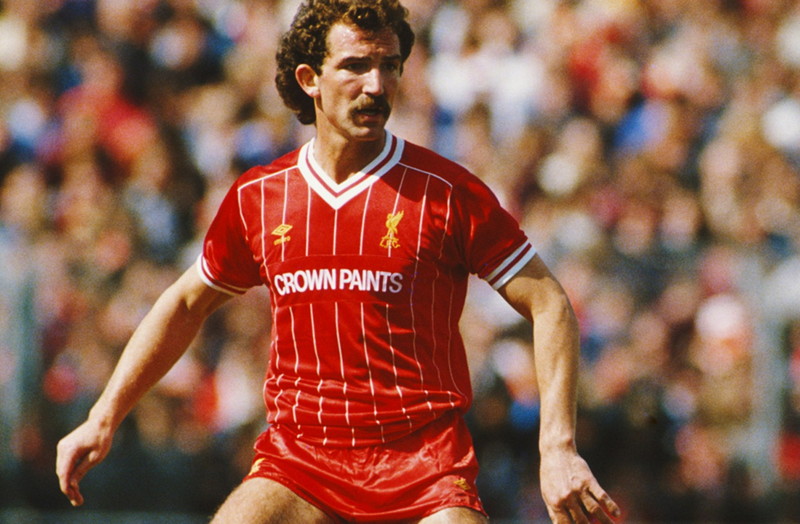
There are few managers that have the sort of divisive reputation that Graeme Souness had. Having been one of the club’s most successful and influential captains, Souness turned to management and had impressed at Rangers in Scotland. When Dalglish resigned, therefore, he seemed like an obvious choice to bring in.
In some ways, his appointment as manager came too soon in his career. Having been ‘one of the boys’ when he was a player, some of the same people that he played alongside where still at the club when he tried to implement severe changes.
An emotional Graeme Souness opens up on his time as manager of Liverpool. pic.twitter.com/sDKZNZ038j
— DAVID JONES (@DavidJonesSky) October 23, 2018
Out went the likes of pie and mash as a pre-match meal, with the Scot trying to get the players to eat more healthily. Many of them rejected his ideas, with Souness not being helped by some of the players that he chose to bring in. The real nail in his coffin as far as the vast majority of Liverpool supporters were concerned, though, came when he gave an interview to the S*n in the wake of his heart surgery.
He later admitted it had been a massive mistake, but to many fans it was an unforgivable lapse of judgement. He limped along for another couple of years before eventually being sacked.
Major Managerial Silverware:
- FA Cup (1991-1992)
Roy Evans
Another part of the bootroom, Roy Evans had played for Liverpool as a centre-back between 1965-1974 before becoming one of the key players of the backroom staff. When Souness quit as Liverpool manager in the January of 1994, Evans was an obvious replacement thanks to his longevity at the club.
He managed to create an exciting brand of football by combining long-term stalwarts such as John Barnes and Ian Rush with new players like Steve McManaman and Robbie Fowler. He also led the Reds to a title challenge in the 1996-1997 campaign.
On this day in 1948, Roy Evans was born in Bootle.
Evans represented Liverpool as a player, reserve team coach, assistant manager and manager 🔴
A true Red through and through 💪pic.twitter.com/HkMYr6sN5H
— The Redmen TV (@TheRedmenTV) October 4, 2022
When Ronnie Moran retired in 1998, the last of the bootroom boys had left the club, with the exception of Evans. The idea was that Gérard Houllier would come in as his replacement, but instead he arrived as a joint-manager to work alongside Evans. Predictably, it didn’t really work.
Players didn’t know who was in charge and would play the two off against one another. Evans decided to resign as manager in the November of 1998, leaving Houllier in sole charge. As manager, he stopped the club from the free-fall that it had been in under Souness and got the side playing exciting football again.
Major Managerial Silverware:
- League Cup (1994-1995)
Gérard Houllier
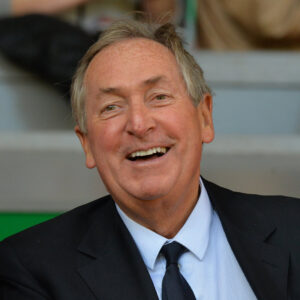 The Frenchman had enjoyed a mixed managerial career prior to arriving at Anfield, taking charge of clubs in his home country as well as the national time. Having been a teacher in Liverpool he had stood on the Kop in his younger days, dreaming of taking charge of the Reds.
The Frenchman had enjoyed a mixed managerial career prior to arriving at Anfield, taking charge of clubs in his home country as well as the national time. Having been a teacher in Liverpool he had stood on the Kop in his younger days, dreaming of taking charge of the Reds.
That dream came true when Roy Evans resigned and left him in sole charge, with Houllier’s aim being to turn the ‘Spice Boys’ into a serious team that could compete with the best teams in the Premier League.
He began what he called a ‘five-year programme’ to sort things out, starting with the sale of certain players.
On this day in 1998, Liverpool appointed the late great Gérard Houllier as joint manager alongside Roy Evans 🤝
The combination only lasted four months however but Houllier went on to become an Anfield favourite in sole charge 🙌
❤️ #YNWApic.twitter.com/ckopDdGUYp
— The Redmen TV (@TheRedmenTV) July 16, 2023
The re-build took time and involved numerous signings, but it is fair to say that it worked. The 2000-2001 season is one of the most successful in the club’s history, with Liverpool winning a treble. The club defeated Birmingham City in the League Cup, Arsenal in the FA Cup and Alaves in the UEFA Cup, with hundreds of thousands heading to the city for the trophy parade. In October of 2001, Houllier fell-ill during the match with Leeds United, having emergency heart surgery. When he returned to the dugout he was given a rapturous reception. He was left by mutual consent in 2004.
Major Managerial Silverware:
- FA Cup (2000-2001)
- League Cup (2000-2001, 2002-2003)
- UEFA Cup (2000-2001)
- UEFA Super Cup (2001)
Rafael Benítez
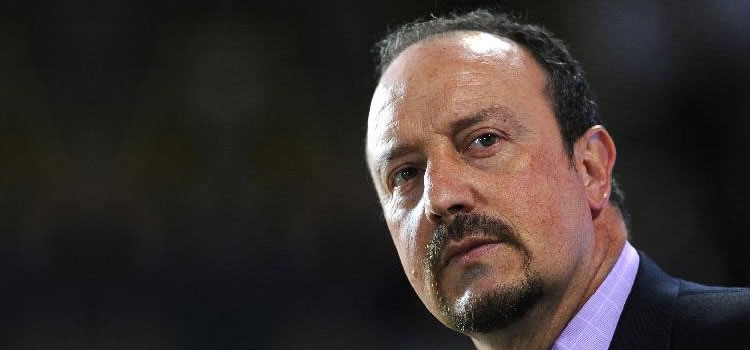
When Houllier’s time at the club was up, someone with real pedigree was needed to replace him. Having taken Valencia to two La Liga titles, in spite of them being in a league with Spanish giants Barcelona and Real Madrid, Rafa Benítez seemed like the ideal candidate.
Methodical and precise, ‘Rafa’ arrived on Merseyside needing to persuade big players like Michael Owen and Steven Gerrard to stay at Anfield. He succeeded with the latter but not the former, yet it was Owen who was watching from the sidelines as Liverpool won the Champions League during Benítez’s first season and the helm.
On this day 2004 Rafa benitez was appointed Liverpool manager ❤️ pic.twitter.com/HoyRMX5XhU
— David McGrady (@Djmc76) June 27, 2023
He won the FA Cup in his second season, suggesting that the good times were indeed about to return to Anfield, but failed to add any more silverware to the cabinet before he was eventually sacked in 2010. We came close to winning the Premier League the previous season, but internal battles between the manager and the board meant that there would only ever be one winner.
Benítez would go on to manager rivals of the club, including Chelsea and our Merseyside neighbours Everton, which made him one of just two people to manage both clubs in Liverpool, but to most he’ll always be fondly thought of regardless.
Major Managerial Silverware:
- Champions League (2004-2005)
- UEFA Super Cup (2005)
- FA Cup (2005-2006)
Roy Hodgson
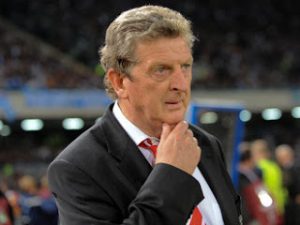 Sometimes managers just don’t fit with football clubs. It hasn’t happened often in the history of Liverpool, but it definitely happened in the case of Roy Hodgson.
Sometimes managers just don’t fit with football clubs. It hasn’t happened often in the history of Liverpool, but it definitely happened in the case of Roy Hodgson.
The Londoner always had long-term ambitions to manage England, which did eventually happen, but he didn’t fit with a Northern club in any way, shape or form.
Luckily for him, his friends in the press meant that he was effectively talked into the Anfield job in spite of the fact that he had no real credentials that mattered that suggested it would be anything to big for him; which is exactly what it proved.
A 3-1 defeat to Blackburn Rovers at Ewood Park was Roy Hodgson's last game as #LFC manager. He led Liverpool FC in 31 games. 31 too many…#LFChistory_net pic.twitter.com/rKnm5qHBjW
— LFChistory.net (@LFChistory) January 5, 2023
He didn’t help himself, describing himself as ‘one of the most respected coaches in the Europe’, saying that Liverpool fans should respect the word of the ‘great man José Mourinho’ and saying that it would’ve been ‘Utopia‘ to get a result against Everton.
Promoted well above his station, it didn’t take long for him to lose any small shred of respect that supporters might have had for him and he was sacked by new owners New England Sports Ventures, who had, frankly, given him longer than the performances his team produced suggested that he actually deserved.
Major Managerial Silverware:
- None
Brendan Rodgers
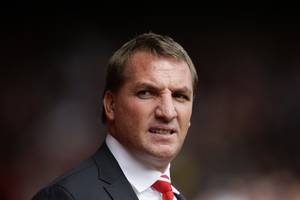
In spite of winning the League Cup and getting the club to an FA Cup final, it was felt that Kenny Dalglish’s second spell at Anfield wasn’t good enough to justify keeping him on any longer. He was asked to step down and FSG brought in a young manager with plenty of ideas about how the get the Reds back to the top of the table.
Brendan Rodgers had played good football with Swansea City in the Premier League, which was enough to capture the attention of John Henry and the other top brass of the ownership, which was by now known as Fenway Sports Group.
On this day 1st June 2012 Brendan Rodgers was appointed as Liverpool's Manager 🔴 @LFC
He had a mixed first season in charge, followed by a terrific second campaign as we came a close second in the League, before a disappointing third season. He led us to 86 wins in 166 games 🏟 pic.twitter.com/oIyzKpSPqE— The Red 🔴 Johnsen (@JohnsenStle) June 1, 2021
Rodgers has always been a manager who has been able to ride the crest of a wave, which is what he did superbly during the 2013-2014 season. The Northern Irishman had turned Steven Gerrard into a deep-lying playmaker and also managed to get the best out of Luis Suarez, in spite of the Uruguayan’s penchant for doing something destructive.
Liverpool should’ve won the title during that campaign, but an ill-fated slip from Gerrard when the Reds were playing Chelsea at Anfield meant that it was going to go down to goal difference and ours wasn’t good enough, so we missed out.
Major Managerial Silverware:
- None
Júrgen Klopp
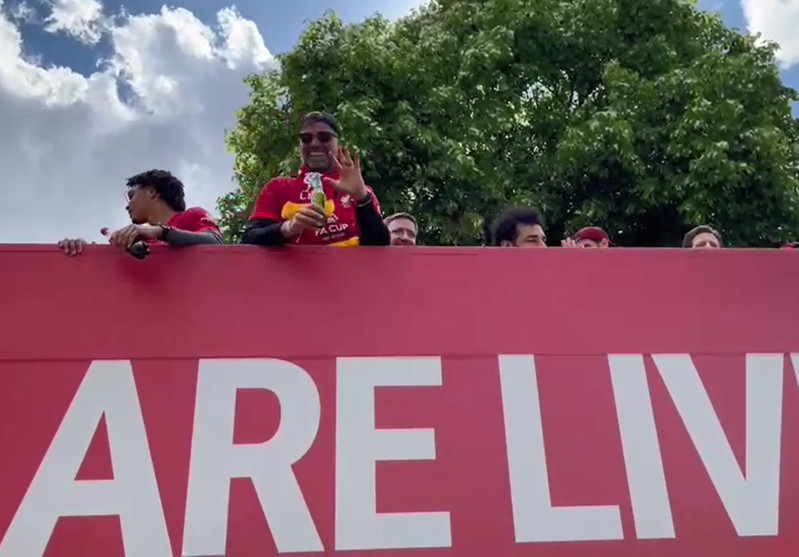
When Liverpool drew with Everton in the October of 2015, it was clear that Brendan Rodgers’ time at the club was up. He was sacked, with the board taking its time to decide upon the best replacement. In the end, the opted to bring in Jürgen Klopp, who had been able to win two Bundesliga titles with Borussia Dortmund in spite of the dominance in Germany of Bayern Munich.
During his first season with the Reds he took us to the finals of the Europa League and the League Cup and even though we lost both, the spirit in the club had completely transformed.
On This Day last year, Jurgen Klopp became the fourth Liverpool manager ever to reach 400 games, following Bob Paisley, Bill Shankly and Tom Watson 👏 #LFC pic.twitter.com/7VnfFtcaPA
— TheKop.com (@TheKop_com) November 1, 2023
During his first press conference Klopp had asked Liverpool supporters to turn from ‘doubters to believers’ and everyone did exactly that. Our belief was rewarded with a Champions League final appearance in the 2017-2018 campaign, which we lost to Real Madrid. Rather than feeling as though that was the end of the journey, however, it felt like it was just the beginning and we made it back to the final a year later, this time winning it for the sixth time.
A Premier League trophy was the one that had always avoided Liverpool since the competition changed its name, but Klopp also took us to that promised land in 2019-2020.
Major Managerial Silverware*:
- Champions League (2018-2019)
- Premier League (2019-2020)
- UEFA Super Cup (2019)
- FIFA Club World Cup (2019)
- FA Cup (2021-2022)
- League Cup (2021-2022)
*At the time of writing
